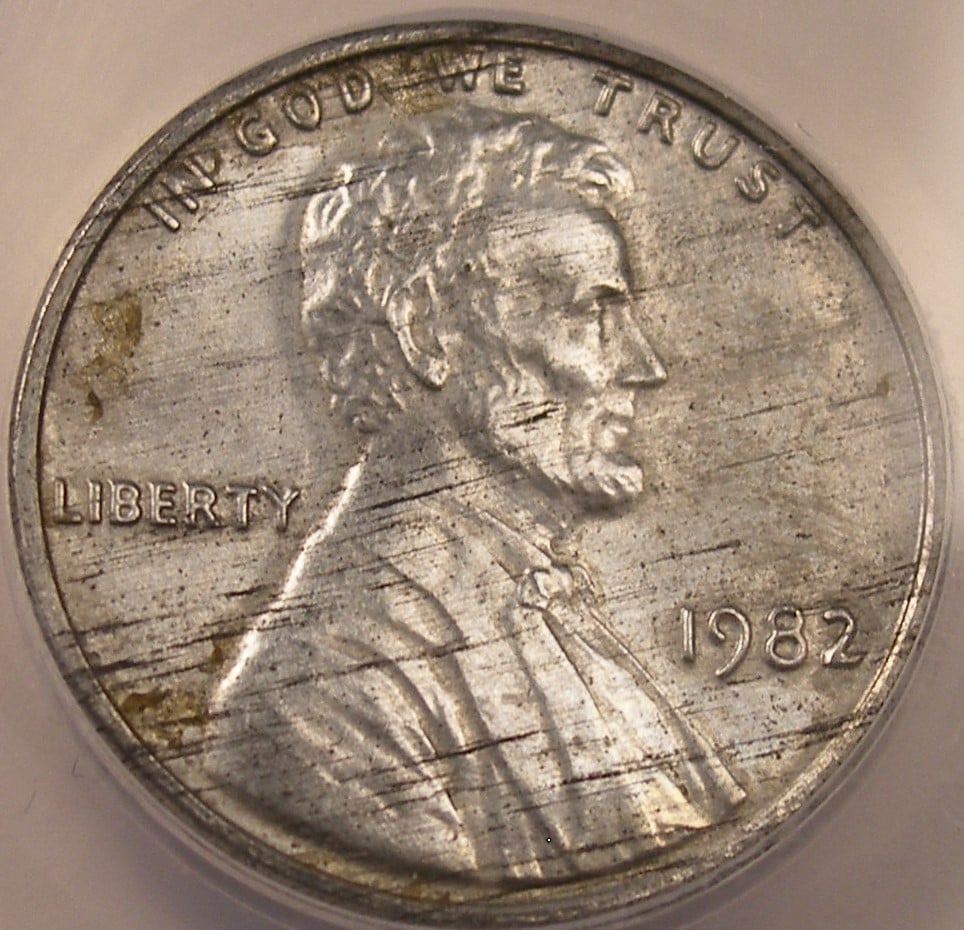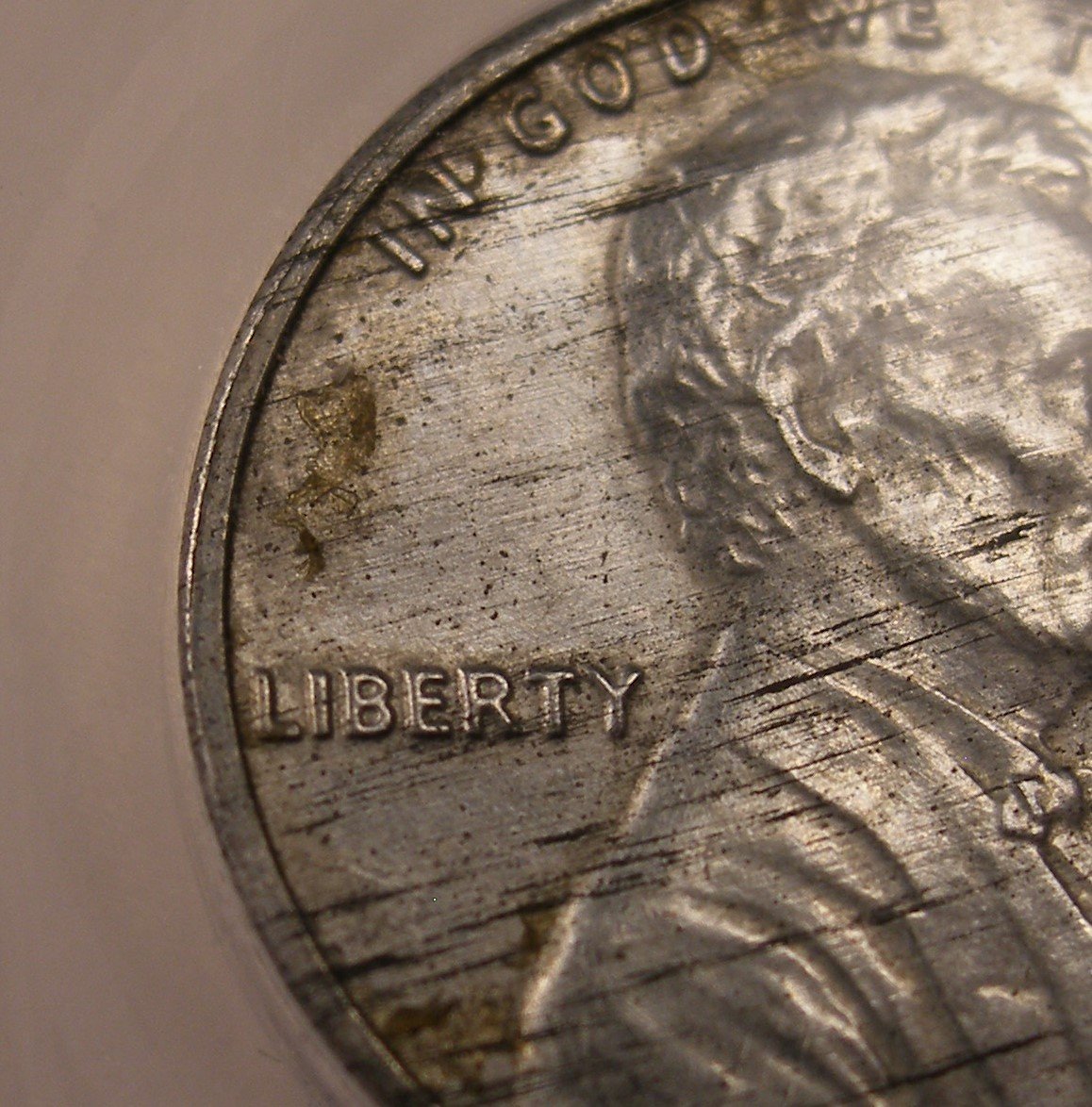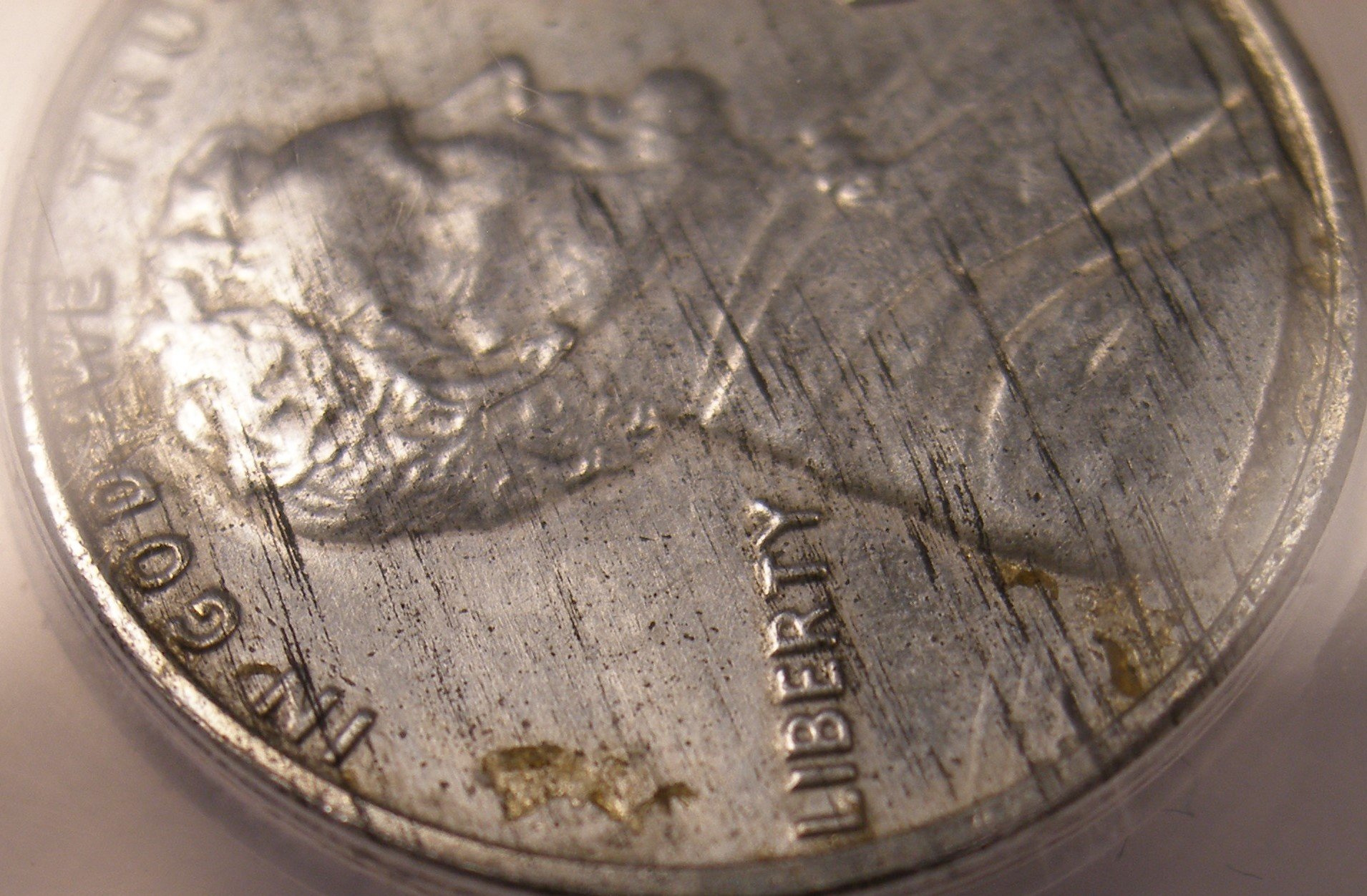Can acetone be used safely on an unplated zinc cent?
Can I use pure acetone to remove glue residue on an unplated zinc Lincoln Cent?
Will the zinc react poorly to the treatment?
The coin currently resides in an ANACS holder.
Thank you



3
Can I use pure acetone to remove glue residue on an unplated zinc Lincoln Cent?
Will the zinc react poorly to the treatment?
The coin currently resides in an ANACS holder.
Thank you



Comments
take a plated cent and some sandpaper. scrub the plating off the good cent. test it
another question is if fingerprints literally eat zinc into some crumble
this is a situation where i'd be afraid of handling it by the edges even
just out of curiosity, can you post a photo of the whole slab. what's the reverse look like?
Acetone won't do anything harmful.
if ok, rinse with alcohol
I use 95% grain alcohol when working with coins. Goo Gone is wonderful for removing any kind of glue residue. The alcohol is useful for removing tar.
Whoever is careless with the truth in small matters cannot be trusted with important matters.
Ac> @jmlanzaf said:
I disagree 100%. Acetone will remove it. Lighter fluid works too.
actually, i've never found pure alcohol. i'd just keep rinsing with fresh acetone
The OP asked if acetone was safe. My comment was meant to read thar it would not do anything harmful.
You are 100% correct. I find that when I disagree 100% to something, I an often 100% wrong! I will be much more careful in the future.
You risk having that coin come back as ‘altered surfaces’ – it does not look like an original
Unplated coin to me.
100% acetone with no additives will not damage any coin. It will dissolve most types of glue or lacquer. But don't rub it just do serial soaks in fresh acetone.
What exactly does the ANACS holder say (or post a picture of it)?
If you want the best answer, it is always best to provide full information. The Amazing Kreskin is off at a show this week.
Thank you all for your comments!
Here are some more images of the coin in question
i'm not so sure that's glue residue
That was also my first thought. How or why would glue get on a coin like that? While it's possible, it's more likely just grease from the coin press or just dirt/grime that the coin picked up somewhere in its travels. Does ANACS do coin conservation? You could ask them to crack it out, dip it, and then regrade it for you. Not sure how much an unplated zinc cent is worth but it's probably not worth the cost of getting conserved and graded by NGC or PCGS.
Worry is the interest you pay on a debt you may not owe.
"Paper money eventually returns to its intrinsic value---zero."----Voltaire
"Everything you say should be true, but not everything true should be said."----Voltaire
A few observations (and with some photo enlargments ) on this coin.
) on this coin.
There appears to be a different surface texture (at least on part of the coin) that is 'rough' and linear.
This surface texture is essentially parallel to the dark streaks.
The surface texture, although limited viewing, is also present on the reverse.
The reverse dark streaks are also essentially parallel to this surface texture.
When doing a coin flip (horizontal axis) the obverse and reverse surface texture and dark streaks are essentially parallel.
The dark streaks go up to edges and over the top of devices and letters and appear flat to the surface.
With the above I start thinking it is in the 'coin' - possibly sheet production (rollers...). Why are the fields apparently rough and not struck out smotther? Due to missing layer? Note the soft strike on reverse letters at 11 o/c.
Also a couple of photos appear to show a shadow around some lettering - LIBERTY, IN GOD WE, and date. Not sure.
The glue part might be what the OP focused on and in the obverse field at 9 o/c.
Also could be behind Lincolns shoulder and maybe at top between and below the words GOD and WE.
Dark streaks are around these maybe glue areas. Which if they go through them, then not glue there? It is kind of hard to get a good view on some of it.
One potential glue spot (from OP focus) and the surface texture.
.
Not zoomed in as much showing the dark streaks parallel to surface texture, going up to edge and over devices and into rim.
.
Trying to get the one potential glue spot behind shoulder but also the short 'ridges' (not struck out) on the coat that are also parallel to the streaks.
A reverse area with a similar texture, and parallel dark streaks. And when doing a coin flip are parallel to the obverse. This can also be seen around 11 o/c where the soft strike on the letters is.
https://youtube.com/watch?v=Yq4KA0mUnC8 - Dream On (Aerosmith cover) via Morgan James & Postmodern Jukebox
https://youtube.com/watch?v=m3lF2qEA2cw - Creep (Radiohead cover) via Haley Reinhart & Postmodern Jukebox
RLJ 1958 - 2023
Agree, the glue is the two yellowish blobs. No ideas what the streaks are .
Looks like variable oxidation of alloy matrix.
Well, just Love coins, period.
I was thinking the streaks could be from copper plating that had oxidized to a dark brown color. I collect Lincoln cents and have never seen that. I have a totally unplated cent in BU that has a very bright luster. I also have two BU partially plated cents. None of them show the slightest trace of copper streaking. The plating trails off the Zinc smoothly leaving a few dots of copper on the zinc part.
We don't know the exact alloy or impurities of the zinc, and doubt there is copper alloy in that. I really like that people as yourself explore variants such as you've highlighted.
Well, just Love coins, period.
It looks like tape residue to me.
I do not know what reacts with modern cents. I remember finding one under my muddy floor mat in my pickup that was half eaten away (and not by mice).
Agree, not copper. Thanks. I'm learning. I never thought about impurities in the zinc. If so, they should be on many planchets either covered by copper or exposed because the plating did not "take". Wouldn't it be funny if the area under plating bubbles and streaks on zinc cents was this impurity rather than occluded gas!
Hello Fred,
Are you saying that it may have been altered after leaving the mint?
To be more specific - The coin is not a genuine unplated planchet?
It is not inconceivable that someone could remove the copper plating from a zincoln, not saying that happened here, but I don't see why it would not be possible. Not sure what it would look like as I have not done any work to determine that.
As to the issue of impurities rather than gases causing plating bubbles, I do not accept that hypothesis. There is no evidence and it is mere speculation. The plating bubbles can easily be ruptured with a toothpick and there is nothing to see, hence it must have been just a gas bubble. Please provide some reasonable alternative to advance such speculation. And no, I do not like zincolns due to the poor plating issues, I wish they had used steel with a copper coating like Canada did successfully for some time.
I would not try to do anything to the coin because of the chance you could mess up with it. I know ANACS will "professionally" clean the coin for a small fee.
first, there is die rotation
on both the obverse and reverse, the streaks are parallel and at one angle
looking at both photos, the streaking apprears to be at the same angle front and back
i don't think that's tape residue
so, i would not try to remove the streaking. i would try to change the label once what is going on is figured out
it would be interesting if someone has access to plating equip if they could de-plate a zincoln
I think it would be very difficult to remove the copper plating which is bonded to the zinc core. It might be easier to just zinc plate over the copper plating to give the cent a zinc color appearance. Not sure how convincing it would be and I'm sure it wouldn't fool professional coin graders/authenticators.
Worry is the interest you pay on a debt you may not owe.
"Paper money eventually returns to its intrinsic value---zero."----Voltaire
"Everything you say should be true, but not everything true should be said."----Voltaire
lines front and back - parallel and at the same angle
what if...
the above cent with plating has the same black streaks under the plating that the op coin has without the plating